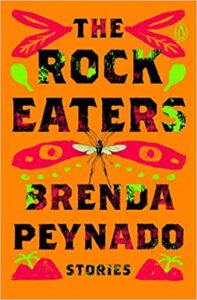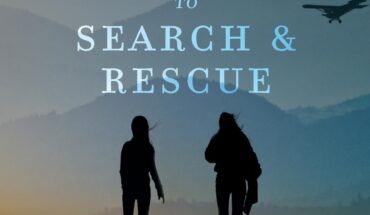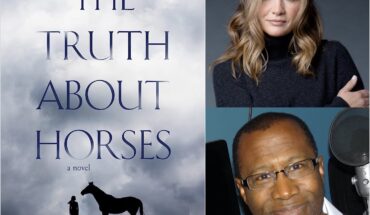 “Society cannot exist,” the philosopher Edmund Burke cautioned, without “a controlling power upon will and appetite…men of intemperate minds cannot be free. Their passions forge their fetters.” A similar warning may reside in The Rock Eaters, Brenda Peynado’s beautifully bizarre short story collection.
“Society cannot exist,” the philosopher Edmund Burke cautioned, without “a controlling power upon will and appetite…men of intemperate minds cannot be free. Their passions forge their fetters.” A similar warning may reside in The Rock Eaters, Brenda Peynado’s beautifully bizarre short story collection.
Peynado’s stories swallow you whole, each one a different universe of desire: there’s the world where people shout “thoughts and prayers” at the angels perching and preening and defecating on rooftops; the Earth where aliens arrived only to be massacred and take up kite-flying for solace; the land where a lifetime’s slumber is done all at once and children resist dozing off because sleeping young is sinful.
Just try catching your breath from Peynado’s lyrical and unflinching prose, and already she whisks you off to another dimension sure to unsettle you into seeing something strangely. Thus beguiled, you confront the beauty and danger of human hunger.
The Rock Eaters debuted this month to praise from the San Francisco Chronicle, the Boston Globe, and Kirkus Reviews, and was named a must-read of spring/summer 2021 by Book Riot.
John McClure: As a kid, I couldn’t understand why Monet painted so many damn water lilies. Now I’m obsessed with artists returning to the same subject from new angles. Your collection displays such breadth, but it seemed like the difficulty of crossing boundaries kept coming up. Does that unite these stories for you? Do you think of yourself as having a subject?
Brenda Peynado: When I was writing these stories, I didn’t have a book project in mind. Once they were collected, I saw the thread as loving across boundaries. Sometimes that boundary is literal, like immigration. Sometimes it’s an internal wall we’ve erected for ourselves, the ways we keep each other apart. For me, each story looks at how we love each other with these obstacles in the way.
Is that something you come back to naturally in your fiction or is it deliberate?
I’m fascinated by the ways love can cause harm. We want desperately to love and be loved, yet there’s so much cruelty and sorrow in the world. Out of that comes a story like “Thoughts and Prayers” where the mother is trying to protect her daughter and that very protection causes injury. I often think of people who amass guns: it’s not because they want to kill people, it’s because they want to protect what they love, yet they’re still storing up something dangerous.
I love the everyday tragedy of those ironies, how we’re invisible to each other and can be trying our best but still misunderstand. In life, most of those moments go unremarked and unrepaired. In your story “Yaiza,” there’s a passage after the antagonist shows the narrator great generosity: “Later, her kindness would be my consolation prize, and my gratitude burned. I would never thank her. I felt a hot fire in me to win, to beat her for her kindness. Who can explain why we feel it necessary to be cruel when we do?” Your characters often resist gentleness, reacting in explosive ways I don’t expect. Why do you think gentleness and kindness can be so hard? What virtues do we miss about anger and ferocity?
I put a lot of myself in these characters, and I have come to gentleness by way of growing up, a long growing up.
I grew up with and prized a fighter mentality. It probably comes from my fierce mother and being raised more on the justice and righteousness sensibilities of Catholicism than the mercy and forgiveness ones. So often one can think, “Well, if I’m right, then anything is justified because we should fight for what’s right.”
But framing what you’re doing as justice requires an unwavering belief that you cannot be wrong and ignoring the other perspective. Because once you consider that you might be wrong, you allow for the idea that all of the incidental harm that you’re doing in the name of justice is just… harm. A lot of good can come from ferocity and correcting injustice, but sometimes we do things out of feeling like we’re right and only later realize the other is a subject, somebody who feels and has their own secret thoughts and tragedies, and they might have their own righteousness. Maybe gentleness is a way of working out my regrets.
My characters often reach for ferocity because they’re so desperate in their love and want that they’re willing to do anything. Gentleness is often something they don’t have the ease or the time to afford. Sometimes it’s also because they’re resisting looking themselves in the mirror, considering that they might be wrong, like the main character in “Yaiza,” who isn’t willing to look herself in the eye.
For somebody who’s more uncertain and sees a multiplicity of perspectives, it’s hard to summon ferocity. But that can also be a danger if gentleness and uncertainty delay addressing injustice. Do you think gentleness can also come with regrets?
Definitely. I think there’s a push and pull in the collection between characters who are convinced they’re right and are willing to do anything to fix things, often enacting tragedy along the way, and a character like in “Thoughts and Prayers” who thinks she can just pray to the angels and be nice like her mom wants. Her friend challenges her: do you think you’re actually doing anything?
But then there’s also the main character of “Catarina,” who chooses a sacrificial, gentle kind of love, though through the course of the story you can see how much it’s costing her.
I think in me there’s both the fierce challenger and the person who backs away, believing in mercy, and for many of these stories, you can see the divide between these two halves in what the characters are trying to overcome.
In any case, I want my stories to avoid easy answers. My characters are flawed, human. The tragedy they visit upon the world is because they want, because they love, whether they are the ones to walk away from a fight or the ones to throw the first punch.
This tension between ferocity and gentleness resembles how the worlds of your stories often felt bleak, but the characters beloved. You’ve said, “There’s not really a coherent argument for humans as a fundamental good, not without relying on magic or magical thinking.” How does magical thinking salvage an idea of humanity as good?
Humans are consumers, not just in the capitalist sense. We just consume the world around us, and when there are too many of us, we consume something until it dies just to keep ourselves going. Why are we so wonderful that we get to ruin everything we touch? Why should humans survive and whales not? Why should our want for ivory come before the elephants we are extincting?
But we are capable of abstraction. We’re able to consider our plight with magic and metaphors in ways other animals can’t imagine. There is beauty because we are capable of perceiving it, magic because we are capable of imagining it. Although maybe one day, when we decipher whale song, we’ll discover they too have stories and magical thinking.
That would be awesome.
Right? I won’t say our ability to consider hypotheticals and metaphors is always a good thing, but it’s an interesting thing. It’s one of the things I would celebrate about humanity.
And my stories, even while they show these hungry humans, their losses and ruin, also show beauty and magic and love along the way.
I love the idea that magical thinking ennobles us. Our attempt to escape our flesh-prisons, to see things from another’s perspective, that is a kind of magic trick, a good one. I think we often forget realism is a convention, a storytelling conceit not necessarily authentic to the world. Throughout this collection, you take ordinary things and help us see them strangely, or you take something strange and help us hold it close. I’ve read you struggle to maintain joy when writing realism. Why do you prefer to write the world this way? What does weirdness buy us?
Fabulism is a way of unearthing realities that don’t fit in the dominant narrative, for one. Sometimes it takes magical thinking to disarm the reader into believing something they otherwise would have resisted.
But another thing it buys me, personally, is that I can get away with telling rather than showing. I desperately hate writing scene.
Do you? You have a lot of great scenes!
I get bored easily, so my attention for following someone carefully is just nil.
On the other hand, weirdness and exaggeration can be rocket fuel for narrative. If you can just say the most outrageous thing, you don’t have to show incremental change. Instead of following Johnny as he grows bigger, you just say “Johnny was fifteen feet tall, the giant of the town.” That exaggeration gets you a short cut to something wondrous, something unique about that character, and something you don’t have to show their everyday lives to prove.
Sort of like attacking the suspension of disbelief from the other direction? Rather than persuade the reader something is real, you blow it open by going so big you leave the reader too awestruck to question it?
Yeah, like OK, he’s the biggest man in the whole town. Got it.
I also just get excited about strange and wondrous things. They bring cohesion to stories. If I write about flying people, it’s not going to be incidental to the story. It’s not like “oh by the way, they also fly,” because then flying is going to jump out like it doesn’t belong. If I write about flying people, then the story is about flying, about movement and crossing borders and where they fly to. That is going to be the heart of the story.
“The Stones of Sorrow Lake” started out as a realist story, and it kept getting away from me. I once moved to this small town where people didn’t move away. It amazed me how they all knew each other’s history. That was something I felt cut off from because my parents immigrated. They sort of left their histories behind, so I didn’t have access to that kind of lore. I wanted to write about that, but with realism I kept having to introduce irrelevant plots. It wasn’t until I came upon the stones growing inside people that the plot itself was the metaphorical thing I wanted to talk about.
You write incisively about what it means to be American. In “True Love Game,” one of the characters describes it as “an eternal struggle for everything and nothing that he wants.” In “The Radioactives,” the protagonists are Venezuelan superheroes “made from American mistakes and [their] own desires.” You say American “appetites are inexhaustible.” What can Americans see more clearly about themselves through a Latinx magical realist lens?
It’s taken me a long time to come to what it means for me to be an American. I had an activist aunt who was on the other side of the U.S. invasion of the Dominican Republic. She would tell the stories, saying “the Americans invaded.” When I retold the stories, I had to decide whether to say “we invaded” or “they invaded.”
I spent a year in the Dominican Republic researching a novel. I expected for it to be a homecoming. It was heartbreaking to realize you can’t arrive somewhere and pretend like you’ve lived there all along. It was a year of coming to terms with what it meant to be American, to yearn for a place that possibly never existed.
Something I find endemic to Americanness is a false feeling of inevitability—of course we are a great nation, of course we’re thriving economically. I think if you come from a much smaller country where even little politics can rock the country, there’s a sense one person doing one thing differently could change everything.
It’s funny how that subverts the American paradigm of the lone, rugged ordinary guy saving the day. You’re saying instead that American exceptionalism makes us feel impervious, so then what’s it matter what any one person does?
Even when Americans think about their rugged, lone heroes, they’re often still thinking about them in terms of destiny rather than mishap, and it’s an ahistorical destiny.
I think many Americans lose sight of responsibility, an understanding of how small decisions made in the U.S. impact people across the globe. When migrants risk their lives to cross the border, it’s short-sighted and ahistorical to say, “We have this great country and we don’t want these people here,” even though we’ve stolen much of the country and in some cases stolen the very livelihoods of the people now trying to cross. Our appetites are inexhaustible. As humans who live in a powerful country, that ends up skewing what’s available to people elsewhere.
Magical realism can flip the lens. Maybe someone hasn’t questioned their reality, but if I introduce a little magic, everything gets called into question, and things weirdly become clearer.
I felt that most strongly in “The Radioactives.” The story held up a mirror to American policies but in the disarming context of a magical X-ray truck tracking drugs. Where a realist story might have engaged me analytically, this story put me too off-kilter to waste time contending. I just went for the ride.
The funny thing is those X-ray trucks come from a real-life story. There was a veterinarian I met who couldn’t do X-rays. Back in Venezuela, he’d worked on these trucks the U.S. sent, and the shutter for the radioactive source wouldn’t close. A few years ago, the U.S. considered using them in NYC to scan its own citizens, probably in brown neighborhoods. So, “The Radioactives,” the weirdest story of the collection, is also, sort of, the most real.
It’s amazing how flights of fancy are usually one tiny step from real life.
What are you working on now?
I’m finishing a novel set during the Dominican civil war. The day the Americans invade, the protagonist gets the power to see all possible futures without knowing which one she’ll end up in, and she tries to save her mother. She tells this story to her own daughter on the eve of the death she’s foreseen for herself.
Brenda’s novel about all possible futures appears in yours once the multiverse settles on a date. Improve your present—buy The Rock Eaters now. See the world strangely.
Brenda Peynado’s debut short story collection, THE ROCK EATERS, has garnered starred reviews from Publishers Weekly and Kirkus Reviews and praise from NPR, Entertainment Weekly, The Boston Globe, The San Francisco Chronicle, The Washington Post, io9, The Millions, and BookRiot. Her stories have won an O. Henry Award, a Pushcart Prize, the Chicago Tribune’s Nelson Algren Literary Award, and selection for The Best American Science Fiction and Fantasy and The Best Small Fictions. She currently teaches creative writing at the University of Houston.




1 comment